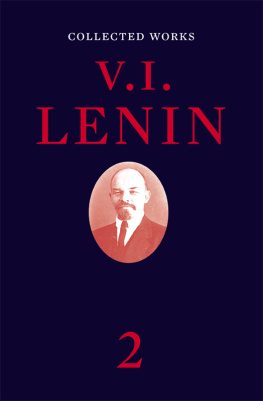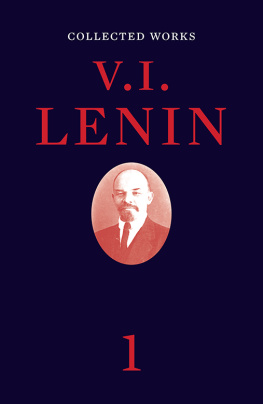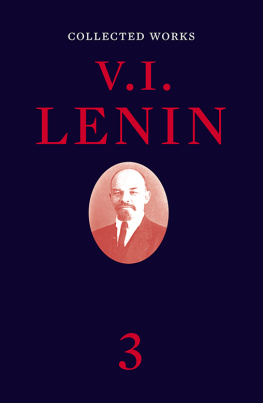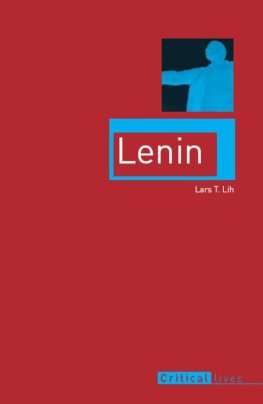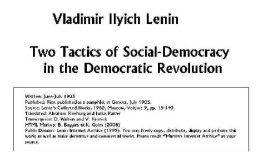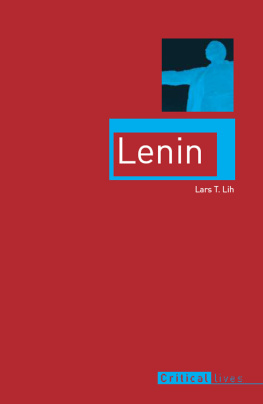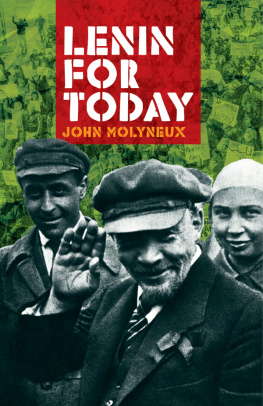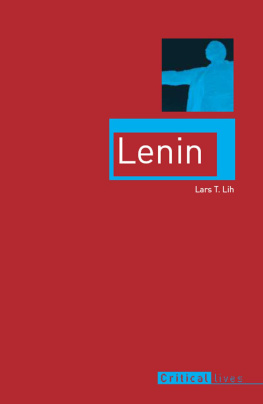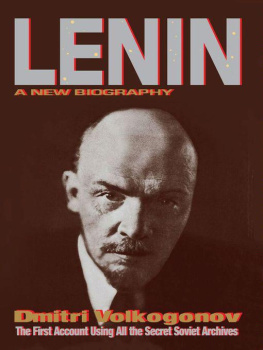V. I. Lenin - The Tax in Kind
Here you can read online V. I. Lenin - The Tax in Kind full text of the book (entire story) in english for free. Download pdf and epub, get meaning, cover and reviews about this ebook. year: 1965, publisher: Marxists Internet Archive, genre: Politics. Description of the work, (preface) as well as reviews are available. Best literature library LitArk.com created for fans of good reading and offers a wide selection of genres:
Romance novel
Science fiction
Adventure
Detective
Science
History
Home and family
Prose
Art
Politics
Computer
Non-fiction
Religion
Business
Children
Humor
Choose a favorite category and find really read worthwhile books. Enjoy immersion in the world of imagination, feel the emotions of the characters or learn something new for yourself, make an fascinating discovery.

The Tax in Kind: summary, description and annotation
We offer to read an annotation, description, summary or preface (depends on what the author of the book "The Tax in Kind" wrote himself). If you haven't found the necessary information about the book — write in the comments, we will try to find it.
The Tax in Kind — read online for free the complete book (whole text) full work
Below is the text of the book, divided by pages. System saving the place of the last page read, allows you to conveniently read the book "The Tax in Kind" online for free, without having to search again every time where you left off. Put a bookmark, and you can go to the page where you finished reading at any time.
Font size:
Interval:
Bookmark:
V. I. Lenin
(The Significance Of The New Policy And Its Conditions)
Written: Completed on 21 April, 1921 (started in March)
First Published: Published in pamphlet form in May 1921; Published according to the pamphlet text collated with the manuscript
Source: Lenins Collected Works, 1st English Edition, Progress Publishers, Moscow, 1965, Volume 32, pages 329-365
Translated: Yuri Sdobnikov
Transcription\HTML Markup: David Walters & R. Cymbala
Copyleft: V. I. Lenin Internet Archive (www.marx.org) 2002. Permission is granted to copy and/or distribute this document under the terms of the GNU Free Documentation License
Formatted to EPUB by Ian Schlom
The question of the tax in kind is at present attracting very great attention and is giving rise to much discussion and argument. This is quite natural, because in present conditions it is indeed one of the principal questions of policy.
The discussion is somewhat disordered, a fault to which, for very obvious reasons, we must all plead guilty. All the more useful would it be, therefore, to try to approach the question, not from its topical aspect, but from the aspect of general principle. In other words, to examine the general, fundamental background of the picture on which we are now tracing the pattern of definite practical measures of present-day policy.
In order to make this attempt I will take the liberty of quoting a long passage from my pamphlet, The Chief Task of Our Day and Left-Wing Childishness and the Petty-Bourgeois Mentality. It was published by the Petrograd Soviet of Workers and Soldiers Deputies in 1918 and contains, first, a newspaper article, dated March 11, 1918, on the Brest Peace, and, second, my polemic against the then existing group of Left Communists, dated May 5, 1918. The polemic is now superfluous and I omit it, leaving what appertains to the discussion on, state capitalism an the main elements of our present-day economy, which is transitional from capitalism to socialism.
Here is what I wrote at the time:
(Extract From The 1918 Pamphlet)
State capitalism would be a step forward as compared with the present state of affairs in our Soviet Republic. If in approximately six months time state capitalism became established in our Republic, this would be a great success and a sure guarantee that within a year socialism will have gained a permanently firm hold and will have become invincible in this country.
I can imagine with what noble indignation some people will recoil from these words. What! The transition to state capitalism in the Soviet Socialist Republic would be a step forward? Isnt this the betrayal of socialism?
We must deal with this point in greater detail.
Firstly, we must examine the nature of the transition from capitalism to socialism that gives us the right and the grounds to call our country a Socialist Republic of Soviets.
Secondly, we must expose the error of those who fail to see the petty-bourgeois economic conditions and the petty-bourgeois element as the principal enemy of socialism in our country.
Thirdly, we must fully understand the economic implications of the distinction between the Soviet state and the bourgeois state.
Let us examine these three points.
No one, I think, in studying the question of the economic system of Russia, has denied its transitional character. Nor, I think, has any Communist denied that the term Soviet Socialist Republic implies the determination of the Soviet power to achieve the transition to socialism, and not that the existing economic system is recognised as a socialist order.
But what does the word transition mean? Does it not mean, as applied to an economy, that the present system contains elements, particles, fragments of both capitalism and socialism? Everyone will admit that it does. But not all who admit this take the trouble to consider what elements actually constitute the various socio-economic structures that exist in Russia at the present time. And this is the crux of the question.
Let us enumerate these elements:
- patriarchal, i.e., to a considerable extent natural, peasant farming;
- small commodity production (this includcs the majority of those peasants who sell their grain);
- private capitalism;
- state capitalism;
- socialism.
Russia is so vast and so varied that all these different types of socio-economic structures are intermingled. This is what constitutes the specific feature of the situation.
The question arises: What elements predominate? Clearly, in a small-peasant country, the petty-bourgeois element predominates and it must predominate, for the great majoritythose working the landare small commodity producers. The shell of state capitalism (grain monopoly, state-controlled entrepreneurs and traders, bourgeois co-operators) is pierced now in one place, now in another by profiteers, the chief object of profiteering being grain.
It is in this field that the main struggle is being waged. Between what elements is this struggle being waged if we are to speak in terms of economic categories such asstate capitalism? Between the fourth and fifth in the order in which I have just enumerated them? Of course not. It is not state capitalism that is at war with socialism, but the petty bourgeoisie plus private capitalism fighting together against state capitalism and socialism. The petty bourgeoisie oppose every kind of state interference, accounting and control, whether it be state-capitalist or state-socialist. This is an unquestionable fact of reality whose misunderstanding lies at the root of many economic mistakes. The profiteer, the commercial racketeer, the disrupter of monopolythese are our principal internal enemies, the enemies of the economic measures of the Soviet power. A hundred and twenty-five years ago it might have been excusable for the French petty bourgeoisie, the most ardent and sincere revolutionaries, to try to crush the profiteer by executing a few of the chosen and by making thunderous declarations. Today, however, the purely French approach to the question assumed by some Left Socialist-Revolutionaries can arouse nothing but disgust and revulsion in every politically conscious revolutionary. We know perfectly well that the economic basis of profiteering is both the small proprietors, who are exceptionally widespread in Russia, and private capitalism, of which every petty bourgeois is an agent. We know that the million tentacles of this petty-bourgeois octopus now and again encircle various sections of the workers, that instead of state monopoly, profiteering forces its way into every pore of our social and economic organism.
Those who fail to see this show by their blindness that they are slaves of petty-bourgeois prejudices.
The petty bourgeoisie have money put away, the few thousands that they made during the war by honest and especially by dishonest means. They are the characteristic economic type, that is, the basis of profiteering and private capitalism. Money is a certificate entitling the possessor to receive social wealth; and a vast section of small proprietors, numbering millions, cling to this certificate and conceal it from the state. They do not believe in socialism or communism, and mark time until the proletarian storm blows over. Either we subordinate the petty bourgeoisie to our control and accounting (we can do this if we organise the poor, that is, the majority of the population or semi-proletarians, round the politically conscious proletarian vanguard), or they will overthrow our workers power as surely and as inevitably as the revolution was overthrown by the Napoleons and the Cavaignacs who sprang from this very soil of petty proprietorship. That is how the question stands. That is the only view we can take of the matter....
Next pageFont size:
Interval:
Bookmark:
Similar books «The Tax in Kind»
Look at similar books to The Tax in Kind. We have selected literature similar in name and meaning in the hope of providing readers with more options to find new, interesting, not yet read works.
Discussion, reviews of the book The Tax in Kind and just readers' own opinions. Leave your comments, write what you think about the work, its meaning or the main characters. Specify what exactly you liked and what you didn't like, and why you think so.

